Overview:
Ongoing efforts to protect workers and customers, and minimise impact to business operations, have seen many businesses eager to ensure their employees are vaccinated against COVID-19 as quickly as possible. As an employer, it is important to understand what role you can play in encouraging your workforce to get vaccinated.

As Australia’s COVID-19 vaccine rollout continues to accelerate against the backdrop of rising case numbers and lockdowns across many states and territories, there is increasing debate about the power businesses have to mandate all their employees be vaccinated as soon as possible in order to continue work.
The question of whether employers not in situations covered by government direction can introduce mandatory vaccinations in their workplace essentially hinges upon the question of whether this requirement can be seen as a ‘lawful and reasonable instruction’ under the Fair Work Act and Fair Work Regulations.
On Friday 3 December 2022, the Fair Work Commission ruled that the COVID-19 vaccination mandate of mining giant BHP, which required that all employees be vaccinated to enter worksites, was unlawful because failed to adequately consult with its workers prior to implementation.
Reasonable and lawful consultation for vaccine mandates
On 7 October 2021, the BHP Mt Arthur mine enforced a direction that all workers at the mine must be vaccinated against COVID-19 as a condition of site entry, referred to as their ‘Site Access Requirement.’
The requirement required employees to provide evidence of the following:
- That they had had at least one dose of an approved COVID-19 vaccinate by 10 November 2021; and
- That they were fully vaccinated by 31 January 2022
The company went on to say that they had attempted to get workers input through the following means:
- Circulation of information on the benefits of the vaccine
- Information on where to book in for a vaccination
- Availability of a dedicated mailbox for submission of vaccination concerns
Despite these measures, the Commission ruled that BHP had not made a genuine attempt to consult unions, engage with health and safety committees or representatives while it was assessing whether to implement a vaccine mandate.
The Commission went on to find that BHP consulted its workforce extensively only after announcing the introduction of the Site Access Requirement. While the consultation included conducting toolbox talks; numerous health and safety meetings; union meetings; and providing the rationale for the Site Access Requirement; it was not done in a timely manner.
The bench concluded that the direction was ‘irrevocable,’ and that the company’s failure to comply with its consultation obligations under the WHS Act ultimately led them to conclude that the Site Access Requirement was not a lawful and reasonable direction.
Effectively, there was no public health order, legislation, or specific provisions in their employment contracts. The Commission found that the legal basis for the vaccine mandate, as a condition of entry to their work premises, appeared to hinge on ‘the implied contractual term that employees obey the lawful and reasonable directions of their employer.’ This, the Commission found, was not enough to be considered compliant with the Fair Work Act.
What are your consultation obligations?
A COVID-19 vaccination mandate should only be introduced with careful consideration and after:
- Conducting a risk assessment tailored to each category of worker to determine whether vaccination Is a necessary and proportionate control to protect the health and safety of employees; and
- Meaningfully consulting with the workforce on any risk assessments and vaccination requirement proposals.
What constitutes a ‘lawful and reasonable instruction’?
Under the Fair Work Act, employees are required to comply with any direction from their employer that is lawful, meaning that it falls within the scope of their employment contract and doesn’t involve doing anything illegal.
However, as Perks People Solutions Director Cecilia White notes, the interpretation of a ‘reasonable direction’ is a little less black and white.
“When determining whether a direction is reasonable, there is a range of factors that an employer will need to consider. These include the nature of the employee’s work, the terms of their contract and establish company practices and policies,” she says.
“In the current environment, there is quite a lot of tension between personal rights and privacy, anti-discrimination practices and the need to protect the health and safety of other workers, customers and suppliers. The question of what constitutes a ‘lawful and reasonable instruction’ is more important than ever.”
This very question was considered in the 2020 case of Kieran Knight v One Key Resources (Mining) Pty Ltd T/A One Key Resources. In this case, the findings were that a survey requiring employees to disclose their travel history to high-risk countries and travel plans for the next six months was a lawful and reasonable direction.
The employee argued that they did not have to complete the survey on the grounds of privacy and was subsequently dismissed after repeatedly refusing to comply, at which point they filed an unfair dismissal claim. The Fair Work Commission subsequently found that the information requested was not sensitive and therefore not protected by privacy laws. As such, requiring the employee to complete the survey was considered a ‘lawful and reasonable instruction’ and the employer had a valid reason for dismissal.
However, it is important to note that the Fair Work Commission stated their decision may have been different if the survey had requested sensitive or private information about an individual’s health, which could arguably be extended to their vaccination status.
What steps can employers take to get their workers protected against COVID-19?
While being vaccinated against COVID-19 is voluntary for most Australians, workers in certain high-risk settings, including residential aged care, health and quarantine services are now required to get their vaccine. Equally, employers who are contracted to provide services to such facilities (e.g., security staff or cleaners in medi-hotels) must ensure their staff is vaccinated, with some businesses even providing incentives for employees willing to work in these areas.
While some, like SPC, will be willing to take the lead, employers in industries outside of these specific high-risk settings will need to assess whether it is reasonable and lawful to require that staff be vaccinated.
“In establishing whether it is lawful and reasonable to mandate vaccinations, an employer will need to demonstrate that there is a compelling argument based on a risk assessment that an employee cannot work unless they have been vaccinated,” Cecilia says.
“The present guidelines set out by Safe Work Australia tell us that, in most cases, it is not reasonably practicable for employers to mandate that their workforce get vaccinated. It can also create potential situations of unlawful discrimination if an employee has a medical condition that prevents them from receiving the vaccine.”
“Instead, it may be better to go down the route of encouraging your employees to get vaccinated. You may even consider incentivising them to get the jab, such as paying them for the time it takes to get vaccinated.”
The Morrison Government has also announced the introduction of the no-fault COVID-19 vaccine claims scheme, designed to protect businesses implementing voluntary vaccination drives in the workplace. Whilst life-threatening side effects are rare, the compensation scheme provides a safety net for employers who lost more than $5,000 due to severe adverse reactions to the jab.
Combating vaccine hesitancy
Vaccine hesitancy is also an issue that has become prevalent with the COVID-19 shot and, as an employer, it may be worth investing the time to explore why your employees are reluctant.
Naturally, it isn’t your role to be an expert on vaccines. That being said, it can be useful to equip yourself with resources that can be helpful when managing employees who have engaged with misinformation or who may have anxiety about being injected with a vaccine that was developed quickly. As a starting point, there is some good information that can be found on the Department of Health website.
Cecilia says that the most important thing is communication and utilising trusted leaders in the workplace can be a good strategy to encourage greater vaccine uptake.
“Being open and honest with your staff is always a good strategy, particularly with regard to vaccinations,” she says.
“You may consider appointing ‘vaccine champions’ who are trusted by their colleagues and can lead by example, helping communicate with staff who may be hesitant or resistant to getting vaccinated.”
To assist business owners, the Federal Government has released a range of resources designed to promote vaccinations, which can be accessed here.
Meet our experienced and dedicated team of consultants
Our Consultants
Want to know more? Get in touch.
Please fill out the form below to make an appointment or request more information.
h
Let our wealth of knowledge and experience guide you.
Related Insights










